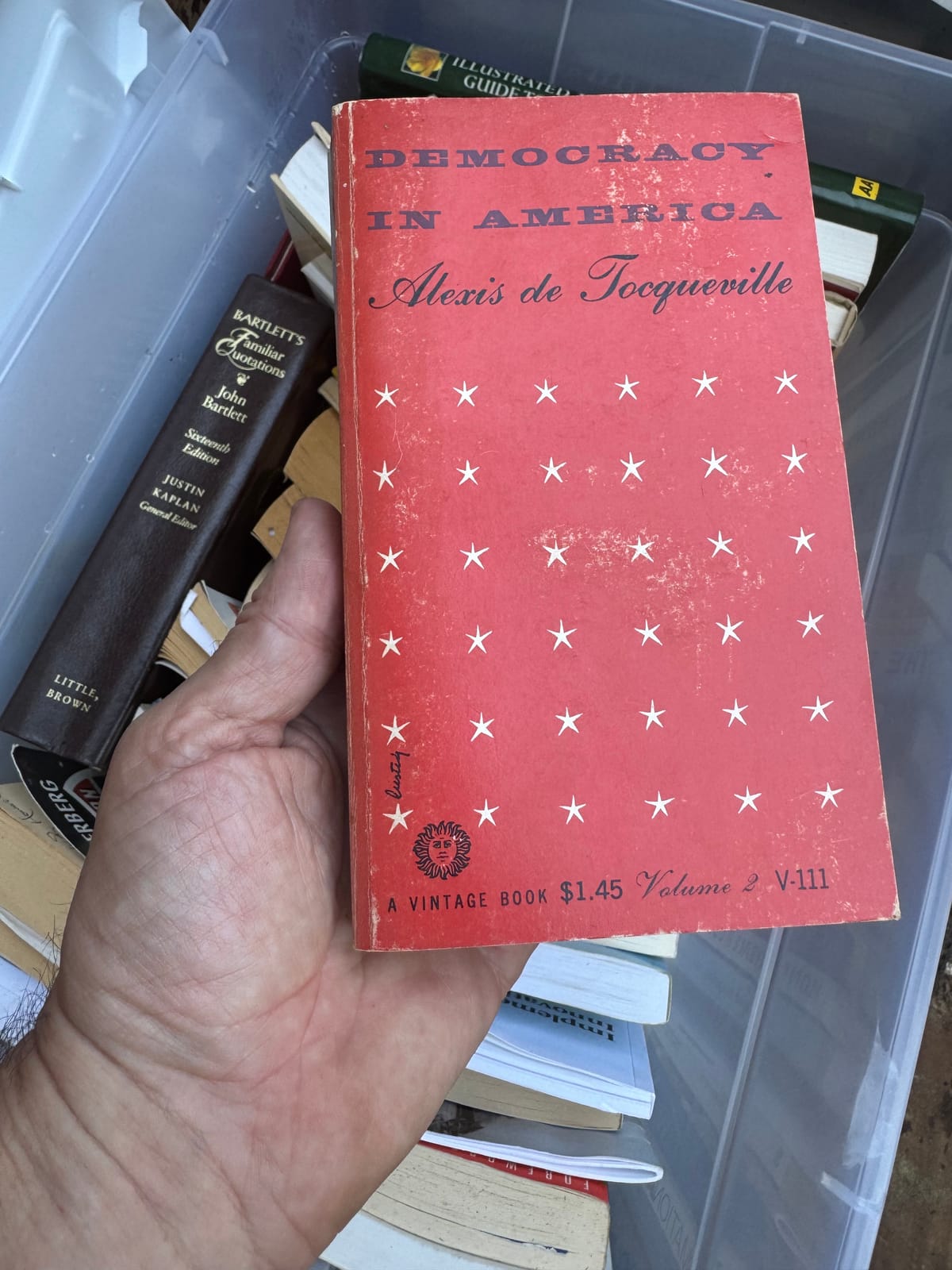What should be in your civic information diet?

Good afternoon from Washington, where I just finished listening to the first meeting of the U.S. government's Open Government Federal Advisory Committee over on Zoom. Administrative meetings like this aren't usually open, but they're livestreaming this one, including the lengthy ethics briefing members received.
While I've been critical of the Biden administration's approach to government transparency and accountability, the very existence of the Committee and the Open Government Secretariat at the General Services Administration both represent a notable break from the past and are setting the defaults for a committee focused on open government appropriately: towards openness.
Today, I'm thinking about "information diets," which remains a useful concept as I keep exploring how to be healthy in an age of ubiquitous screens connected to the Internet.
Spending almost two decades as a technology journalist and open government advocate who couldn't afford to get the rough draft of history wrong – much less mislead any reporters or producers who were depending on me to be an accurate source! – has left me with a near-terminal case of skepticism towards novel claims, even from trusted experts. (It's a challenge.)
I've been a conscious consumer for decades now, after being the beneficiary of a fine education that emphasized the importance of reading broadly, seeking original sources, choosing edited publications and news broadcasts over tabloids and televised shoutfests, and peer-reviewed journals over astroturfed periodicals.
Years ago, Michael Pollan suggested in a terrific book – "The Omnivore's Dilemma" – that we should "Eat food. Mostly plants. Not too much."
I suggest that people who feel overloaded by the endless rushing river of news right now to consider doing the same with respect to which media one consumes:
"Read facts. Mostly slow news. Not too much."
For my part, I watch almost no broadcast or cable news on TV. Instead, I stream news and entertainment content "on-demand" over an Xfinity device, from debates to town halls to Congressional hearings.
I read newspapers on websites, apps, and in print, including New Yorkers that pile up next to my bed and Capitol Hill periodicals. I listen to public radio, CSPAN, and podcasts. I still use an RSS reader to track blogs.
I use lists on the platform formerly known as Twitter as an information utility, complemented by social media feeds on Bluesky, Threads, LinkedIn, Facebook, and Mastodon.
And I subscribe to a lot of email newsletters, alerts, and list-servs.
That last category is where I'd like to be helpful to you – and how I hope you can be helpful to me and everyone else who is now a member of Civic Texts.
Please write to alex@governing.digital to share which email newsletters about civic technologies, digital democracy, public policy, or other topics you always open – and why. If we are able to grow together as a community, I'd love to be a better recommendation engine for all of you over time.
Here's a short – but not exhaustive – list of what's hitting my inbox. (Yes, I read a lot.)
The Connector, by Micah Sifry. On "democracy, organizing, movements and tech."
The Interpreter, by Amanda Taub. On "world events."
Futurepolis, by Gideon Lichfield. On "reinventing democracy, governance, and government for the 21st century."
What We're Reading, by The Upturn. On "justice in technology."
Platformer, by Casey Newton and Zoë Schiffer. On "the intersection of Silicon Valley and democracy."
First Branch Forecast, by Daniel Schuman. "Where Congress learns about Congress."
Linkfest, by Clive Thompson. "The opposite of doomscrolling."
Futureproofing Congress, by PopVox. Ideas for the future-present of Congress.
World View, by Ishaan Tharoor. On "global politics."
Morning Memo, by David Kurtz. TPM's morning "political news roundup."
The Present Age, by Parker Malloy. On "media and culture."
The Torment Nexus, by Mathew Ingram. On "technology & society."
The Cornerstone of Democracy, by Dan Gillmor. The "best reporting and commentary surrounding the pivotal 2024 elections in the United States."
The Ink, by Anand Giridharadas. On "politics and culture, money and power."
For the Record, by Kelly Kaufman. The "latest on FOIA, transparency and accountability battles, threats and wins."
The Atlantic Daily, by staff. What's new in The Atlantic.
Lucid, by Ruth Ben-Ghiat. "Big-picture thinking about autocracy and threats to democracy around the world."
The Unpopulist, by staff. "Defending liberal democracy against authoritarianism in the U.S. and around the world."
FOIA Files, by Jason Leopold. On documents and disclosures from Freedom of Information Act requests.
If You Can Keep it, by Protect Democracy Staff. "Top issues in authoritarianism and democracy in the United States."
Whew!
So, three questions:
1) What am I missing?
2) What are you reading?
3) Would it be useful to you if I curated the best pieces on democracy in a dedicated weekly edition? Would you want that digest more often, versus the long essays I've been sending so far? Or would you prefer that I recommend a new author, newsletter, or publication in each edition?
Please let me know at alex@governing.digital.
What we build together now will be the foundation for what ever Civic Texts becomes later.
As always, thank you for subscribing and amplifying Civic Texts, which will not be sustainable without you. Many thanks to everyone who has supported my work and thus my family, particularly the folks who have subscribed to memberships since our soft launch in April. Your vote of confidence means the world to me.
Please keep sharing these newsletters on social media and forwarding them on email. Organic growth by word of mouth and social recommendations is incredibly helpful, especially given how hard it is to get attention and conversions on today's "pay to play" digital platforms. You can always write to me with questions, comments, tips, features, or other feedback at alex@governing.digital or call/text at 410-849-9808.



